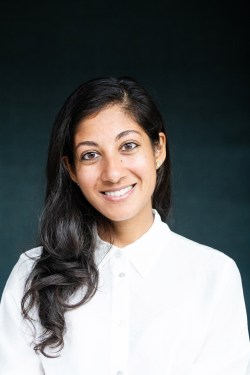Sheena Jindal is from Boston, where she grew up, attended MIT, and worked at the Boston Consulting Group for several years. She later launched a startup, worked at another startup, and then became an investor at Bessemer and Comcast Ventures. Last year, these experiences came together when she decided to launch her own fund, SugarFree Capital. The firm focuses on investing in technical founders from MIT.
She secured limited partners, including the family offices of prominent tech executives from companies like Nvidia and Citadel, and recently announced the closing of SugarFree’s thirty-two million dollar inaugural fund. The fund’s premise is reflected in its name. While working at Comcast Ventures, she led many deals but became dismayed by the sky-high valuations of 2021. She often referred to investment opportunities as being too sugary, meaning the valuations were too high.
From there, she began thinking about how recent innovation has focused on optimization. She believes we are now entering the age of intelligence. She designed her investment thesis around the idea that capturing this new age requires two things: technical founders, particularly those with a systems engineering mindset that MIT cultivates, and concentration. Historical data shows that venture returns are concentrated among a select group of winners.
The focus on MIT also addresses a specific opportunity. Unlike Harvard and Stanford, there is not a large class of MIT alumni who are early-stage investors, even though MIT founders often go on to start and work at lucrative companies. She notes that MIT graduates often go into finance, but typically in more quantitative roles such as hedge funds and late-stage investing.
This white space gives Jindal, a rare solo woman general partner, a significant opportunity. She plans to invest in fifteen early-stage companies and has already backed four. The firm writes checks ranging from one to five million dollars. It focuses on AI-native infrastructure and selects a new theme each quarter to concentrate on. For example, this quarter she is looking for companies focused on physical AI, data center optimization, and AI agents.
SugarFree has already invested in a defense company, a gaming company, and a company in workflow automation. Jindal hopes to make at least four to five investments per year. Much of the deal flow comes from her outreach to founders or referrals, but she is open to cold outreach.
Overall, Jindal feels fortunate about the fund. The fundraising environment was and remains difficult for many general partners, especially solo ones and women. She said limited partners liked that her firm provided good access to MIT talent and had a clear thesis.
She stated that we are in a transition period between a new world order of AI-native technology and the infrastructure and business models of the past. She is excited to see how we harmoniously combine these two in terms of infrastructure, technology, and the human experience, and she finds that prospect very exciting.

